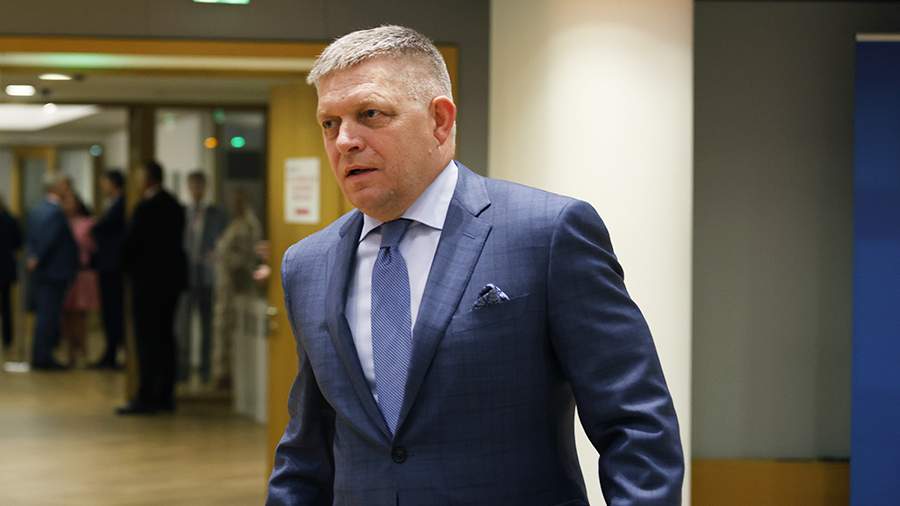Political analyst points to high risks of pressure on Slovakia after Fitzo's threats to Ukraine
- Новости
- Policy
- Political analyst points to high risks of pressure on Slovakia after Fitzo's threats to Ukraine

The European Union (EU) may put pressure on Slovakia after the country's Prime Minister Robert Fitzo said that he might block financial aid to Kiev after Ukraine halted the transit of Russian gas. Political scientist Alexander Asafov shared this opinion with Izvestia on January 10.
Fitzo made the corresponding statement earlier in the day during a meeting of the parliamentary committee on European affairs. He said that if the gas transit issue is not resolved, Bratislava will "without problems" veto EU aid to Ukraine.
Commenting on this, Asafov noted that Fitzo risks going the way of Hungarian Prime Minister Viktor Orban - Budapest has been under pressure from Brussels for sovereign decisions for many years, which sometimes turns into blocking EU aid to the country and beyond.
"It's a question of reciprocal influences here, how willing is Fitzo to get some aid blocking of a billion [euros], as was recently the case with Hungary. But Hungary has been living in this for many years and they have a clear roadmap on how to deal with these stories, they weigh every step very carefully. Whether this statement [Fitzo's] is emotional or it is concrete - it seems to me that it is still at the level of verbal interventions," the political scientist said.
According to him, the risk that Brussels will put pressure on Bratislava is very high because there is a "pro-Ukrainian consensus" there, against which the interests of Hungary and Slovakia are secondary for European bureaucrats. Thus, the expert believes, even if Fitzo blocks aid to Ukraine, it will be realized in a roundabout way.
At the same time, also on Friday, Ukrainian Prime Minister Denis Shmygal said that Kiev has no plans to sign any contracts to extend the transit of Russian gas through the country.
Among other things, the day before, on January 9, Fitzo threatened Kiev to stop humanitarian aid because of the decision to stop the transit of Russian gas through Ukraine. The politician noted that Bratislava, as a member of the EU, has the right of veto, which it can use to block some decisions taken in the association.
Prior to that, on 8 January, Hungarian Foreign Affairs and External Economic Relations Minister Péter Szijjártó called unacceptable Ukraine's termination of the transit of Russian gas and crude oil. The minister drew attention to the fact that such a decision by Kiev contradicts its aspirations to join the EU. On the same day, Slovak MEP Monika Benova said that Ukraine's refusal to participate in these negotiations was a sign of weakness of the country's president.
In late August last year, Ukrainian leader Volodymyr Zelensky, whose term in office expired last May, said the country would not extend its gas transit agreement with Russia beyond the end of 2024. Russian President Vladimir Putin later said the country was not giving up gas transit through Ukraine.
On January 1, 2025, Gazprom said it would suspend gas supplies through Ukraine. On the same day, Fitzo said that this would have drastic consequences for the European Union, but not for Russia.
Переведено сервисом «Яндекс Переводчик»

